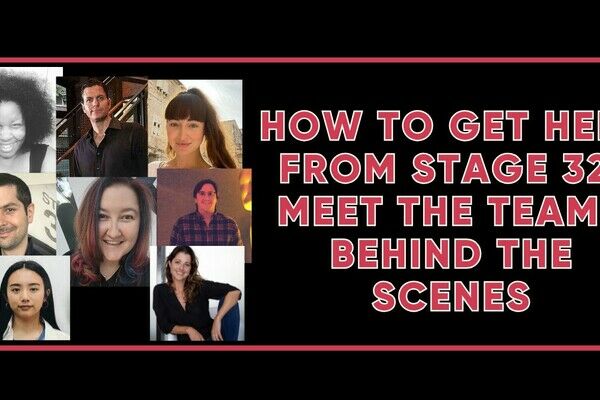5 Screenwriting Reminders I Got From... a Hip-Hop Diss Track?
At the time of this writing, the diss track 'Not Like Us' performed by hip-hop artist Kendrick Lamar, is still chillin' (with arms folded) at the top of the charts. Since its debut weeks ago, the song has been streamed over 120 million times on Spotify alone.
So, unless you've been living under a rock or completely detached from the genre, it is nearly impossible to escape the four-and-a-half-minute triumph. From quirky renditions by social media influencers and celebrities to old white guys to toothless grandmas to middle school kids - 'Not Like Us' has grabbed the world by the throat, showing only marginal signs of easing up.
Widely considered one of the elite rappers of this era, Kendrick's wordplay and unique delivery hits on every level. But after countless plays, I began to see the real genius in it - the SCREENWRITING GENIUS.

1) The Reason.
The wizardry began even before the song was released. The "beef" between Kendrick Lamar and rival hip-hop artist Drake was already simmering after previous back-and-forth tracks and verses. The verbal altercation created great anticipation and the audience's need for another full-on assault. Call it a blessing from the marketing Gods or pure luck, but this campaign answered the question, "Why Now?"
The "Why Now?" is something we screenwriters should know before embarking on a script. Not only does this info help while pitching, but it can also keep us honest/on track during the writing process.
2) In the Beginning.
We all know (or should know) that a script should start with a strong hook to snag our audience. NLU begins with a calm voice, saying, "Pssst, I see dead people." Never mind the phrase's origin, but this lets the audience know right away that this song will be different. Curiosity is piqued at this point. It's also the moment most listeners CRANK UP the volume, leading to week-long ear ringing.
As screenwriters, we must strive for the same effect, getting the reader to lean in from page one, thirsting for what's to come. It doesn't have to be big, but it must be interesting.

3) Pick a Side.
If you're a Hip-Hop head like myself, you were already invested in the protagonist's journey. Still, even if you weren't, Kendrick does a remarkable job introducing himself as a badass. "I'm finna pass on this body, I'm John Stockton/Beat your a-- and hide the Bible if God watchin." When he spits those words, we know that this guy is no joke, and we wanna see what else dude is capable of, i.e., John Wick, Jack Reacher, and Furiosa.
Even if our protagonist isn't volatile, setting the stage as soon as possible is crucial. Where does this character stand? Is he a pushover, a patient and kind soul, or a hothead that will take you down faster than food poisoning?

4) Don't Forget About Me.
Here's where things get interesting: although we don't experience the point of view of the antagonist, Kendrick acts as a narrator, divulging Drake's wrongdoings, instantly making us side with the Compton artist. Whether the accusations are true or false, the robust way these ills are revealed paints a picture we can't get out of our heads --
"Say, Drake, I hear you like 'em young/You better not ever go to cell block one." He continues, "To any ----- that talk to him and they in love/Just make sure you hide your little sister from him." I don't know about you, but after hearing this, I'm hating this cat - Team Kendrick all day! He even takes down a few of Drizzy's henchmen, again, displaying his power.
Now, our story may not use the above approach (which, if not done carefully, could fall in the category of telling and not showing). However, it is essential to make our antagonist a viable opponent, so when the hero comes into conflict with them - it's a battle the audience/reader looks forward to.

5) Shake it Up, Baby.
The first two verses take us on a revenge-themed mission of destruction filled with knockout punchline after punchline, and we expect the third verse to follow that formula. Yet Kendrick switches things up and drops arguably the most unique set of bars in the last decade, comparing Drake to a colonizer who uses southern-based rappers to sustain his music success --
"The settlers was using town folk to make them richer/Fast-forward 2024; you got the same agenda." It truly is a work of art and an appreciated surprise in an otherwise predictable arrangement.
It's incredibly easy to get "script fatigue" and fall into a mundane pattern; after all, a script can take months to complete. A good twist can make all the difference. Sometimes a quick lightning bolt can reignite the story AND the excitement we had when we first typed fade in.
There are many elements to keep in mind when embarking on, not just a screenplay but any form of writing - especially if one wishes to captivate the reader. Despite having multiple scripts in my cache, it never hurts to have a reminder of some basic yet valuable fundamentals. It just so happens mine came in the form of a diss track.
"Wop, Wop, Wop, Wop, Wop!"
Let's hear your thoughts in the comments below!
Got an idea for a post? Or have you collaborated with Stage 32 members to create a project? We'd love to hear about it. Email Ashley at blog@stage32.com and let's get your post published!
Please help support your fellow Stage 32ers by sharing this on social. Check out the social media buttons at the top to share on Instagram @stage32 Twitter @stage32 Facebook @stage32 and LinkedIn @stage-32
| Stage 32 Success Story: Go…And Make Your Own Magic! |
| Exploring VR, AR, & XR Storytelling! |
Search Stage 32 Blog
There are now 4042 blog posts for you to enjoy. Search them all by tags below.
Acting, Advice, Cinematography, Coffee & Content, Composing, Contests, Distribution, Featured, Filmmaking, Financing, Inspirational, Networking, Producing, Screenwriting, Success Stories, Tips, Trending,Relevant Tags
Recommended Articles

State of the Industry 2026 Now On-Demand: RB & Geoff Break Down What’s Next for Writers!

How to Get Help from Stage 32: Meet the Teams Behind the Scenes

Coffee & Content: Low Stakes Stories, High Stakes Decisions

Coffee & Content: Why Your Pitch Needs to Be Human

Forbes Spotlights Stage 32 Certification!

Insider Intel: Packaging your Project- The Chicken or the Egg Dilemma

What Stage 32's Community Is Really About (Beyond Scripts, Sets, and Showreels)

Stage 32 Now Certifying Centro de Portugal Film Commission!

Insider Intel: 2025- Your Year of Breakthroughs (+ What's Coming in 2026)






